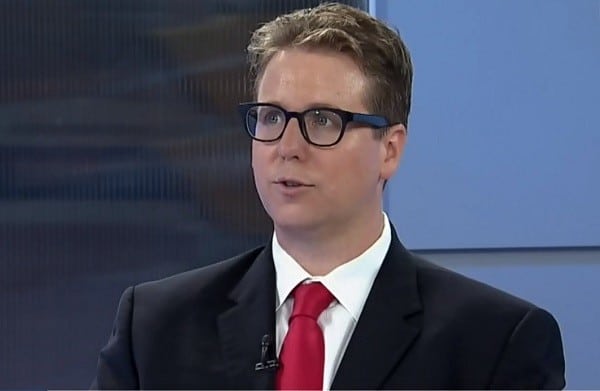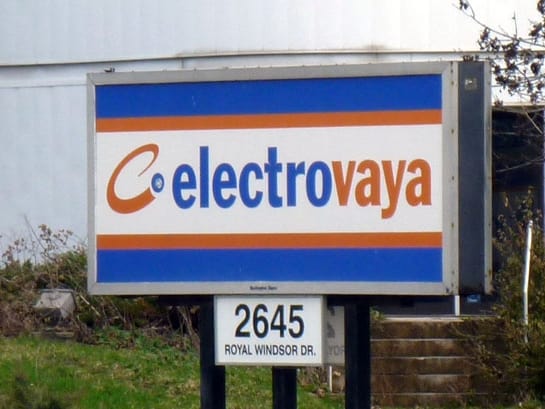
Plugged In: Canadian Cleantech on the World Transportation Stage
For decades, it seemed, we heard about advances in the auto industry without ever seeing the progress first hand. It’s been more than ten years since GM’s controversial EV1 electric cars were recalled and unceremoniously crushed. Today, however, most of us have at least a neighbour with a Prius, and have heard of the “hydrogen highway”. What you may not know is that some public Canadian tech companies are playing pivotal roles in this sea change. From Westport Innovation’s (TSX:WPT) groundbreaking work with natural gas engines to Electrovaya’s (TSX:EFL) lithium-ion batteries, many Canadians already own a piece of this future.
5 Questions with Dr. Sankar Das Gupta, Chairman and CEO of Electrovaya (TSX:EFL)
When influential website earth2tech published its list last July of (no less than) thirteen startups working on lithium ion batteries, the names included companies from places you would expect. Imara, from Menlo Park, California, develops small format batteries for power tools and outdoor equipment. CFX Technology, is a startup that grew out of research from CalTech. And A123 Systems, which worked with nanoscale materials licensed from MIT, raised more than $350 million from private investors before a IPO in which they raised $380 million. They Company also secured a $249 million dollar grant from the department of energy. Advances in lithium ion battery technology mean it is about to reach real commercial viability. BMW, Mercedes and Volkswagon have all recently debuted electric cars featuring lithium-ion batteries.
Mississauga’s Electrovaya was the only Canadian entry on earth2tech’s list. The recent run up in the companies share price, the stock has moved from $.25 on May 6th, 2009 to a recent high of $4.27 on April 23rd, 2010, reflect a company whose scale of opportunity has increased dramatically. While the company hasn’t raised the staggering amounts of money that A123 has, Electrovaya is poised to become a major Canadian success story.
So what’s behind the recent run-up in Electrovaya shares? The long answer is a more than a decade’s worth of pioneering work and 150 patents on its lithium ion battery technology. The short answer is Chrysler. On March 24, Electrovaya announced that it had been selected by Chrysler to supply the battery for a hybrid version of the Dodge Ram pickup. The Company also appointed former Chrysler CEO (and Windsor Ontario native) Tom Lasorda to help guide them through the process.
We gave the readers of Cantech Letter the opportunity to ask anything you wanted of Electrovaya’s boss, Dr. Sankar Das Gupta. Here’s what you wanted to know:
1. (from Andre in Edmunston)
Hi, and thanks for the opportunity! My question is, we know about lithium and cars. How about lithium storage for my home (cottage), I will be off the electric grid eventually and producing my own! If lithium is like the fuel of the future, is there another substance that would be or will be needed for the storage of energy!
SDG:
“There is lots of evidence to support the hope that Lithium Ion Batteries will be a prominent residential energy storage solution in the future. Lithium itself, or lithium ion batteries alone, do not produce energy. The energy needs to come from other sources (like renewable sources). It may be some time before these systems are available for affordable for residential use but as the technology is improving rapidly.
Electrovaya is currently partnered on a major grid storage project with CEATI International and several major utilities. The project entails providing energy storage systems in urban centers to offset peak demand, and providing a storage system for renewable grid applications. This program is among the first of its kind in North America.
2. (from Jesse in Nepean)
Do you see a time in which cities will mandate areas for lower speed electric vehicles, or do you think that before that happens the technology behind those vehicles will allow them to reach currently acceptable highway speeds?
SDG:
Hi Jesse. I can’t speculate on what policies will be championed in the future. That being said, currently there are various campus programs, including our own demonstration program at the Maryland Science Centre in Baltimore, which permit low speed vehicles to operate within an enclosed area. Electric vehicles can currently reach acceptable highway speeds. The cost is currently a barrier but is expected to decrease over the next few years.
3. (from Jerry in Toronto)
I saw recently that Ontario Premier Dalton McGuinty recently visited your facility and that Electrovaya has received a certain amount of Provincial and Federal support. Being a company that deals internationally, do you have a sense of how advantageous or disadvantageous it is running a technology company, particularly and R&D intensive one, in Canada compared to other countries?
SDG:
It is extremely advantageous to set up an R&D Intensive business in Canada. Reasons include high quality workers and co-located suppliers and partner. Electrovaya has developed a clean manufacturing process that does not use toxic solvents. Unlike other companies that use these solvents, Electrovaya can manufacture batteries in a country like Canada with very strict environmental regulations. Geographically, the location is ideal to access markets both globally and in North America, and also to manufacture both in the US and Canada.
4. (from Paul in Vernon)
Dr. Gupta, congratulations on the success of your company. It’s great to see these things happening in Canada. Nonetheless, I am going to grill you a bit! My question is about The Company’s fiscal health. You recently posted your second consecutive quarter of net-operating profit. Do you see your balance sheet improving in the coming quarters? Where, in your opinion, is the most likely place that Electrovaya will begin to derive revenue from? What about your cash position? $5 million in the bank doesn’t seem like a lot for the scale of projects you are taking on. Do you plan to raise money in the future?
SDG:
We continue to work to strengthen the balance sheet through a combination of growth, and strategic partnerships.
Electrovaya is focused on providing batteries and battery systems for two key markets: the electric vehicle market and the grid utility market. We see revenues coming from both those markets.
5. (from Barbara in Ajax)
Geographically speaking, where are the most immediately addressable markets for Electrovaya’s technology?
SDG:
Immediately addressable markets are located in many places throughout the world. Electrovaya focuses primarily on two areas: Grid utility applications and electric vehicle applications. Electrovaya currently has partnerships with companies in North America, Europe, India, and Japan.
Leave a Reply
You must be logged in to post a comment.






 Share
Share Tweet
Tweet Share
Share




Comment